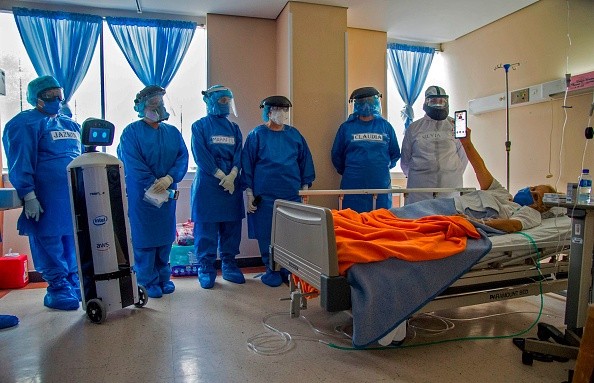As the COVID-19 pandemic entered its third year, endless human beings have gone through various stages of uncertainty, isolation, and intellectual fitness challenges. Many are nonetheless critically laid low with mental health issues.
New studies have discovered that the ones who've had COVID-19 had a considerably hgiher risk of experiencing mental health problems.
The studies become performed with the aid of using the Washington University School of Medicine in St. Louis and the Veterans Affairs St. Louis Health Care System.
Observation been made by the doctors

In a large, complete observational of mental health effects in humans with SARS-CoV-2 infections, researchers discovered that such problems arose within 12 months after recuperation from the virus in folks that had critical in addition to slight infections.
According to News Medical, the study discovered that folks that had COVID-19 had been 60% much more likely to be afflicted by mental health issues than folks who had been now no longer infected, main to improved use of prescription remedy to deal with such issues and improved dangers of substance use problems such as opioids and nonopioids including alcohol and illicit drugs.
The study included only patients who had no mental state diagnoses or treatment for a minimum of 2 years before becoming infected with the coronavirus, permitting researchers to specialize in medical diagnoses and treatment that occurred once coronavirus infection.
Depression and anxiety has been proven by the researchers due to COVID-19
Those who had Covid were 39 % additional likely to be diagnosed with depression and 35 percent more likely to be diagnosed with anxiety over the months following infection than individuals without Covid throughout a similar period, the study found.
Covid patients were 38 percent more likely to be diagnosed with stress and adjustment disorders and 41 percent more likely to be diagnosed with sleep disorders than antiseptic people, according to New York Times.
Ziyad AlAly, MD, a senior author, and clinical epidemiologist at the University of Washington, said: "But while all of us are suffering from a pandemic, people infected with COVID 19 are much worse mentally. We recognize this reality before being involved in a much greater mental health crisis. And we have to deal with these situations right now," as per Times Now News.
The researchers analyzed de-identified clinical data in a database maintained through the U.S. Department of Veterans Affairs, the nation's biggest integrated healthcare transport system.
The researchers created a managed dataset that covered health statistics of 153,848 adults who had examined positive for COVID-19 sometime from March 1, 2020, through Jan. 15, 2021, and who had survived the first 30 days of the disease.
Few people withinside the study had been vaccinated before developing COVID-19, as vaccines were now no longer extensively available at the time of enrollment.
It doesn't surprise her because they saw it, said Maura Boldrini, an Associate Professor of Psychiatry at Columbia University Medical Center, New York-Presbyterian. It's amazing how often they saw people with these new symptoms who had no previous history of mental illness. She added. As per New York Times
© 2025 NatureWorldNews.com All rights reserved. Do not reproduce without permission.





